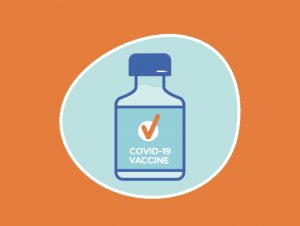Paul Bowie (1,2), Duncan McNab (1,3), Julie Ferguson (1), Carl de Wet (1), Gregor Smith (4,5), Marion MacLeod (1), John McKay (1), Craig White (6,7)
ABSTRACT
Objectives:
(1) To ascertain from patients what really matters to them on a personal level of such high importance that it should ‘always happen’ when they interact with healthcare professionals and staff groups.
(2) To critically review existing criteria for selecting ‘always events’ (AEs) and generate a candidate list of AE examples based on the patient feedback data.
Design:
Mixed methods study informed by participatory design principles.
Subjects and setting:
Convenience samples of patients with a long-term clinical condition in Scottish general practices.
Results:
195 patients from 13 general practices were interviewed (n=65) or completed questionnaires (n=130). 4 themes of high importance to patients were identified from which examples of potential ‘AEs’ (n=8) were generated:
(1) emotional support, respect and kindness (eg, “I want all practice team members to show genuine concern for me at all times”);
(2) clinical care management (eg, “I want the correct treatment for my problem”); (3) communication and information (eg, “I want the clinician who sees me to know my medical history”) and (4) access to, and continuity of, healthcare (eg, “I want to arrange appointments around my family and work commitments”). Each ‘AE’ was linked to a system process or professional behaviour that could be measured to facilitate improvements in the quality of patient care.
Conclusions:
This study is the first known attempt to develop the AE concept as a person-centred approach to quality improvement in primary care. Practice managers were able to collect data from patients on what they ‘always want’ in terms of expectations related to care quality from which a list of AE examples was generated that could potentially be used as patient-driven quality improvement (QI) measures. There is strong implementation potential in the Scottish health service. However, further evaluation of the utility of the method is also necessary.
Click here to read the full paper (PDF).
REFERENCES
- McWhinney IR. Patient-centred and doctor-centred models of clinical decision making. In: Sheldon M, Brook J, Rector A, eds. Decision making in general practice. London: Stockton, 1985:31–46.
- Illingworth R. What does ‘patient-centred’ mean in relation to the consultation? Clin Teach 2010;17:116–20.
- Epstein RM, Fiscella K, Lesser CS, et al. Why the nation needs a policy push on patient-centered health care. Health Aff (Millwood) 2010;29:1489–95.
- NHS Scotland. The healthcare quality strategy for NHS Scotland. Edinburgh: Scottish Government, 2010.
- Committee on Quality of Health Care in America. Institute of medicine crossing the quality chasm: a new health system for the 21st century. Washington, DC: National Academy Press, 2001.
- Department of Health. Creating a patient-led NHS: Delivering the NHS Improvement Plan. Crown, 2005. Report No 265602.
- Health Foundation. Measuring patient experience. London: Health Foundation, 2013.
Dr. Carl de Wet Bibliography
Peer-reviewed publications
de Wet C, Bowie P. The preliminary development and testing of a global trigger tool to detect error and patient harm in primary-care records. Postgrad Med J 2009 Apr;85(1002):176-180.
de Wet C, Spence W, Mash R, Johnson P, McConnacchie A, Bowie P. The development and psychometric evaluation of a safety climate measure for primary care. QSHC 2010 20 April 2010(Online first).
de Wet C, Bradley N, Bowie P. Significant event analysis: a comparative study of knowledge, process and attitudes in primary care. JECP 2010:1-9.
de Wet C, Johnson P, Mash R, McConnachie A, Bowie P. Measuring perceptions of safety climate in primary care: a cross-sectional study. JECP 2010:1-8.
de Wet C, Murie J. Lamb pays lip service: two cases of ecthyma contagiosum (orf). SMJ 2011;00:1-4.
de Wet C, Bowie P. Screening electronic patient records to detect preventable harm: a trigger tool for primary care. QPC 2011;19(2):115-125.
Robson J, de Wet C, McKay J, Bowie P. Do we know what foundation year doctors think about patient safety incident reporting? Development of a Web based tool to assess attitude and knowledge. Postgrad Med J 2011 Nov;87(1033):750-756.
Deonarine P, de Wet C, McGhee A. Computed tomographic pulmonary angiography and pulmonary embolism: predictive value of a d-dimer assay. BMC Research Notes 2012; 5:104
Bowie P, Halley L, Gillies J, Houston N, de Wet C. Searching primary care records for predefined triggers may expose latent risks and adverse events. Clinical Risk 2012;18(January):13-18.
Murie J, Allen J, Simmonds R, de Wet C. Glad you brought it up: a patient-centred programme to reduce proton-pump inhibitor prescribing in general medical practice. Qual Prim Care 2012;20(2):141-148.
de Wet C, McKay J, Bowie P. Combining QOF data with the care bundle approach may provide a more meaningful measure of quality in general practice. BMC HSR 2012 08/10/2012;12(351).
Bowie P, Skinner J, de Wet C. Training health care professionals in root cause analysis: a cross-sectional study of post-training experiences, benefits and attitudes. BMC HSR 2013; 13:50. Available at: http://www.biomedcentral.com/1472-6963/13/50 Last accessed 19/06/2013.
Ashgar S, Murie J, de Wet C. Reducing inappropriate blood glucose test strip prescribing
in a general medical practice. Journal of Online Clinical Audit. 2013: 5 (1): 1-6.
de Wet C, Johnson P, O’Donnell C, Bowie P. Can we quantify harm in general practice records? An assessment of precision and power using computer simulation. BMC Medical Research Methodology. 2013: 13(39). Available at: http://www.biomedcentral.com/1471-2288/13/39. Last accessed 19/06/2013.
Deonarine P, Han S, Poon FW, de Wet C. The role of 18F-fluoro-2-deoxyglucose positron emission tomography/computed tomography in the management of patients with carcinoma of unknown primary. Scottish Medical Journal 2013; 58(3): 154-162.
Mckay J, de Wet C, Kelly M, Bowie P. Applying the trigger review method after a brief educational intervention: potential for teaching and improving safety in GP specialty training? BMC Medical Education 2013; 13:117 Available at: http://www.biomedcentral.com/content/pdf/1472-6920-13-117.pdf. Last accessed 17/12/2013
Spears M, McSharry C, Chaudhuri R, Weir CJ, de Wet C, Thomson NC. Smoking in asthma is associated with elevated levels of corticosteroid resistant sputum cytokines – an exploratory study. PlosOne 2013; 8(8): 1-9. Available at: http://www.plosone.org/article/fetchObject.action?uri=info%3Adoi%2F10.1371%2Fjournal.pone.0071460&representation=PDF. Last accessed 17/12/2013
de Wet C, O’Donnell C, Bowie P. Development of a preliminary ‘Never Event’ list for general practice using consensus-building methods. Br J Gen Pract. 2014 Mar;64(620):e159-67. doi: 10.3399/bjgp14X67753610.3399/bjgp14X677536
de Wet, Bowie P. Patient safety and general practice: traversing the tightrope. Br J Gen Pract. 2014 Apr;64(621):164-5. doi: 10.3399/bjgp14X677716.
Newham R, Bennie M, Maxwell D, Watson A, de Wet C, Bowie P. Development and psychometric testing of an instrument to measure safety climate perceptions in community pharmacy. J Eval Clin Pract. 2014 Dec;20(6):1144-52. doi: 10.1111/jep.12273.
Bowie P, McNab D, Ferguson J, de Wet C, Smith G, MacLeod M, McKay J, White C. Quality improvement and person-centredness: a participatory mixed methods study to develop the ‘always event’ concept for primary are. BMJ Open 2015;5:e0066667 doi:10.1136/bmjopen-2014-006667
Books, book chapters and guides
Bowie P, de Wet C, Pringle M. Significant event analysis guidance for primary care teams. 2011:1-48. Available at: http://gptraining.dundee.ac.uk/docs/2011/NES%20SEA%20Guide%20FinalVersion%202011.pdf. Last accessed 25/01/2014.
Bowie P, de Wet C. Safety and Improvement in Primary Care: the essential guide. Radcliffe Publishing Ltd. 2014: London.
Campbell SM, Spencer R, Cheraghi-Sohi S, de Wet C. Overcoming the patient safety research gaps in primary care. WHO 2014 (in press)
Reports
The following reports were commissioned by or prepared on behalf of NHS Education for Scotland (NES):
de Wet C. Report of the evaluation of the Scottish Patient Safety Leadership Development Course. 2009:1-41.
de Wet C. Report of the evaluation of the Scottish Patient Safety Fellowship. 2009:1-66.
de Wet C. A review of patient safety e-learning modules and resources. 2010:1-35.
de Wet C, Nolte S, Bowie P. Fundamentals of patient safety and human factors in healthcare: Progress report of the development and pre-testing of a certificated e-learning module for NES training groups and educational supervisors. 2011:1-10.
de Wet, C. An overview of patient safety in primary care. 2012: 1-37.
de Wet C, Luty S, Brown C, McKay J. Report of the evaluation of the implementation of the Trigger Review Method in general practice in NHS Ayrshire and Arran. 2014:1-38
de Wet C, Luty S, Brown C, McKay J. Report of the evaluation of the implementation of the Trigger Review Method in general practice in NHS Greater Glasgow & Clyde. 2014:1-52
Dr. Carl de Wet
MBChB DRCOG MRCGP FRACGP MMed(Fam)
General Practitioner / Senior Lecturer
Logan Hyperdome Doctors / School of Medicine
Logan, Queensland / University of Griffith
Tel. 07 3806 0077







